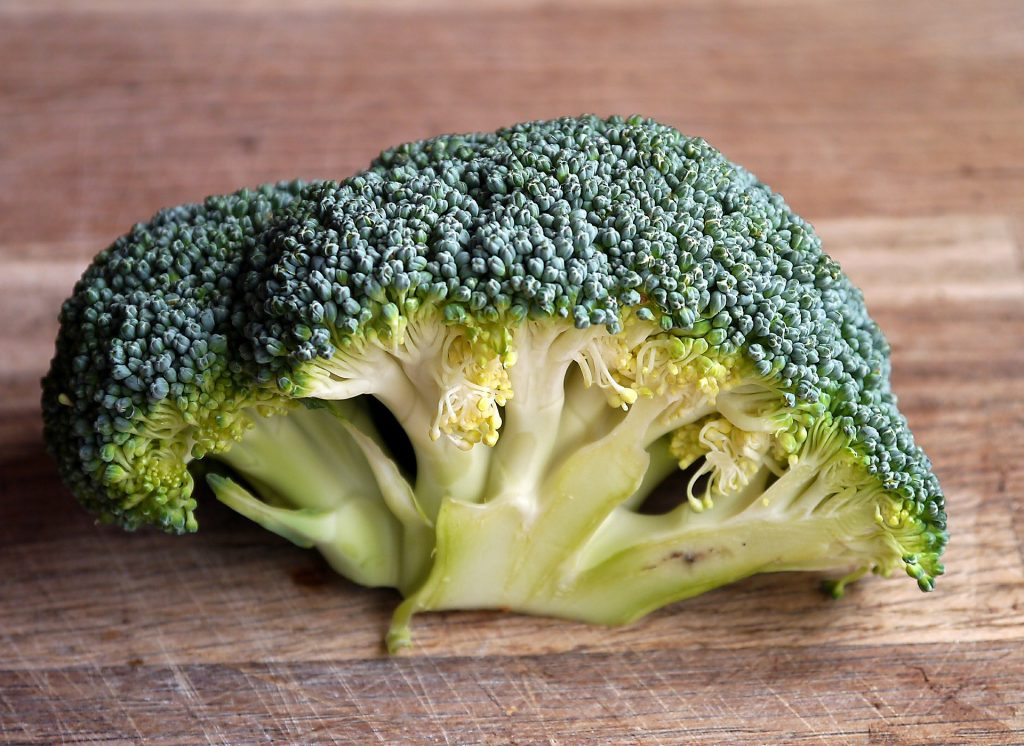 Non-alcoholic liver disease is a condition that is pathologically identical to alcoholic fatty liver disease. Both of these diseases have a similar aetiology, although non-alcoholic fatty liver disease results from an overconsumption of fructose, whereas alcoholic fatty liver disease results from an overconsumption of alcohol. Both fructose and alcohol, when consumed in excess, result in the synthesis of fatty acids, and these are packaged into triglycerides, where they accumulate in the tissues, particularly the liver. As the Western diet is high in sugar, which contains fructose, there is a high risk of developing non-alcoholic fatty liver disease when consuming this diet. A number of foods have been shown to confer protection from the development of non-alcoholic fatty liver. Vegetables have been shown to be particularly beneficial in this regard, likely because they are low in sugar, high in fibre and contain a range of biologically active phytochemicals. Some of these phytochemicals may improve the function of hepatic detoxification pathways.
Non-alcoholic liver disease is a condition that is pathologically identical to alcoholic fatty liver disease. Both of these diseases have a similar aetiology, although non-alcoholic fatty liver disease results from an overconsumption of fructose, whereas alcoholic fatty liver disease results from an overconsumption of alcohol. Both fructose and alcohol, when consumed in excess, result in the synthesis of fatty acids, and these are packaged into triglycerides, where they accumulate in the tissues, particularly the liver. As the Western diet is high in sugar, which contains fructose, there is a high risk of developing non-alcoholic fatty liver disease when consuming this diet. A number of foods have been shown to confer protection from the development of non-alcoholic fatty liver. Vegetables have been shown to be particularly beneficial in this regard, likely because they are low in sugar, high in fibre and contain a range of biologically active phytochemicals. Some of these phytochemicals may improve the function of hepatic detoxification pathways.

Incorporating brassica family vegetables such a broccoli, kale, cabbage and cauliflower into the diet may decrease the risk of developing cancer significantly. This relates to the glucosinolates present in the tissues of brassica vegetables. Glucosinolates are converted to isothiocyanates through the plant enzyme myrosinase (present in the tissues of brassica vegetables) or through the action of bacterial myrosinase in the guts of humans. Isothiocyanates can inhibit phase I detoxification enzymes and activate phase II detoxification enzymes. In this way they favourably inhibit the generation of damaging and reactive phase I metabolites, while at the same time enhance their clearance from the tissues. Brassica vegetables may also protect the liver because the antioxidant nutrients, including vitamin C and flavonoids, inhibit the generation of free radicals generated by the phase I system.
Broccoli is a brassica vegetable that is nutrient dense and contains high amounts of vitamin C, flavonoids and glucosinolates. Brassica vegetables may be particularly beneficial to the health of the liver because the glucosinolates they contain can be converted to isothiocyanates, and these regulate the detoxification pathways of the liver favourably. In addition, the antioxidants in broccoli supply reducing compounds that can prevent tissue damage during the detoxification process. Studies have investigated the protective effects of broccoli against the development of non-alcoholic fatty liver disease models in animals. In one study, broccoli was able to reduce the production of liver derived triglycerides and increase expression of the protein required for their export in mice fed a Western diet (high in lard and sucrose). The authors concluded that broccoli may be effective against non-alcoholic fatty liver disease because it decreases hepatic triglyceride production and increases the efflux of triglycerides from the liver.
Eat Well, Stay Healthy, Protect Yourself
RdB
